SUMMARY
This is AI generated summarization, which may have errors. For context, always refer to the full article.
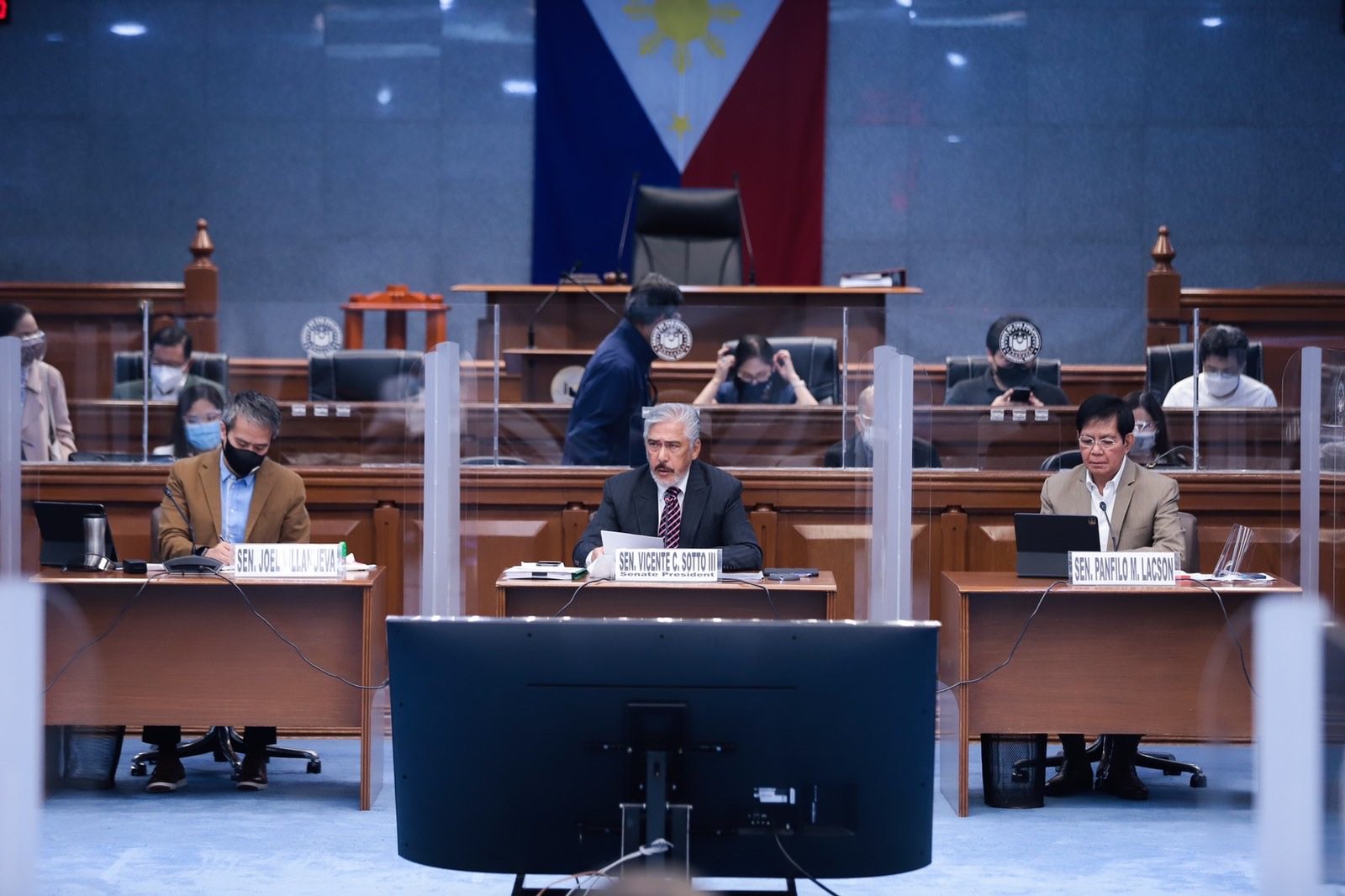
Legislators from both chambers of Congress are at loggerheads with the executive branch as they formalized their call for President Rodrigo Duterte to revoke the executive order (EO) reducing taxes on imported pork.
On Thursday, April 15, the Senate – sitting as the committee of the whole – adopted a resolution urging Duterte to “withdraw” Executive Order No. 128, which reduces import taxes on chilled and fresh pork meat to address the supply shortage and soaring prices.
The same resolution also wants Duterte to set aside his initial proposal to Congress to increase the minimum access volume (MAV) or the number of allowable pork imports with lower tariffs to 350,000 metric tons from the current 54,000 MT.
The resolution was primarily authored by Senate Minority Leader Franklin Drilon, while 18 other senators manifested their intent to be co-authors. They are:
- Senate President Vicente Sotto III
- Senate President Pro-Tempore Ralph Recto
- Senate Majority Leader Juan Miguel Zubiri
- Sonny Angara
- Nancy Binay
- Pia Cayetano
- Leila de Lima
- Risa Hontiveros
- Lito Lapid
- Panfilo Lacson
- Imee Marcos
- Manny Pacquiao
- Francis Pangilinan
- Koko Pimentel
- Grace Poe
- Bong Revilla
- Joel Villanueva
- Cynthia Villar

In the resolution, senators said lowering the tariffs on imported pork, even temporarily, would kill the local hog industry which is already facing the double crises of the African swine fever (ASF) outbreak and the coronavirus pandemic.
“From the testimonies of the resource persons during the [April 12] hearing of this committee, there is reasonable basis to conclude that the new set of tariff rates and the huge increase in the MAV can cause the demise of the local hog industry and cost the government billions in foregone revenue and must therefore be reviewed by the President,” the senators said.
The same resolution also calls for the Senate to approve during plenary proceedings a separate resolution fixing the appropriate tariff rates and MAV of pork “if and when necessary.”
This is likely the joint resolution that Drilon, Villar, and Pangilinan earlier said they would file to revoke Duterte’s EO 128.
Congress is empowered to revoke EO 128 under Republic Act (RA) No. 10863 or the Customs Modernization and Tariff Act, which was the basis of Duterte’s order.
While RA 10863 allows the President to make changes to existing rates of import duty while Congress is not in session, Section 1608 (f) of the same law also states that “the power herein delegated to the President may be withdrawn or terminated by Congress through a joint resolution.”
In the House of Representatives, 17 lawmakers also co-authored their own joint resolution calling Duterte to scrap EO 128, though this is still pending approval.
The Senate and the House, however, can only approve their respective versions of the joint resolution in plenary when session reopens on May 17. Congress is currently on a two-month break.
NEDA chief doubts EO to kill hog industry
Lawmakers have strongly opposed the Duterte government’s policies on pork, arguing that increasing the MAV to 350,000 MT would be more than double of what is realistically the demand for it in the country.
This is in contrast to the defense made by Duterte’s appointed officials, who insisted EO 128 would not kill the local hog industry.
Acting Socioeconomic Planning Secretary Karl Chua told senators on Thursday that he doubts the order would hurt Filipino hog raisers.
He explained there is a limited supply of meat in the world market because other countries are also plagued by ASF. Cold storage facilities are limited as well.
Chua said there is a need to increase the MAV of pork and decrease import taxes to 5% to 10% to help address the lack of supply and stabilize prices in the country.
“After almost two years since ASF started, the data clearly shows that we cannot meet the total demand for pork through only domestic support. This strategy is not enough and has led to a spike in prices this year. If not addressed, this can lead to more malnutrition and higher poverty,” said Chua.
“NEDA (National Economic and Development Authority) supports the temporary increase in the minimum access volume coupled with lower tariffs to help fill the deficit, reduce food prices, and ensure our food supply is adequate and affordable,” he added.
Agriculture Secretary William Dar also earlier justified the recommendation to increase the MAV since the demand for pork in 2021 is supposedly at 1.6 million MT, contrary to the arguments of senators.
Presidential Spokesperson Harry Roque said Malacañang “respects” legislators’ call to revoke EO 128 as it is within Congress’ powers to do so.
He said Congress may also opt to pass another bill changing the tariff on imported pork, though Duterte would still have veto powers over this measure.
Still, Roque hopes the executive branch and Congress “can work together in protecting the interest of the stakeholders such as consumers and our hog raisers alike.” – Rappler.com
Add a comment
How does this make you feel?

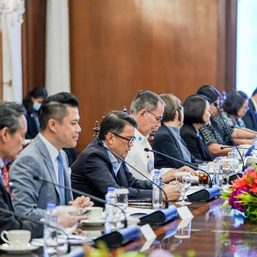
![[OPINION] The First Mode conundrum](https://www.rappler.com/tachyon/2024/03/tl-first-mode-conundrum-03232024.jpg?resize=257%2C257&crop=283px%2C0px%2C720px%2C720px)

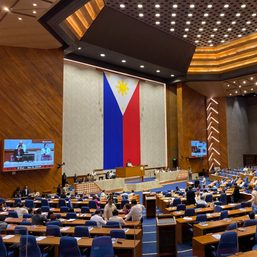


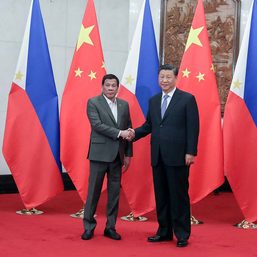

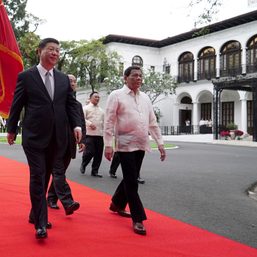
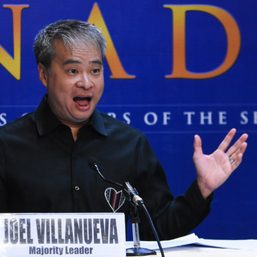
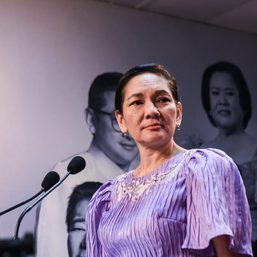
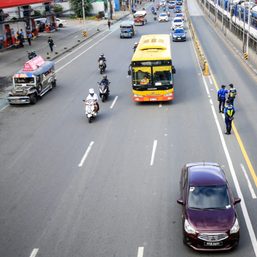

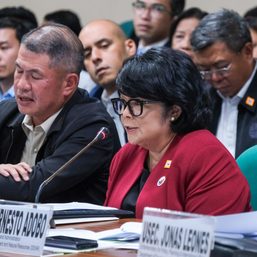
![[Ask The Tax Whiz] How to file annual income tax returns for 2023](https://www.rappler.com/tachyon/2022/11/tax-papers-hand-shutterstock.jpg?resize=257%2C257&crop_strategy=attention)

![[Ask The Tax Whiz] Are cross-border services taxed in the Philippines?](https://www.rappler.com/tachyon/2024/02/bpo-workers.png?resize=257%2C257&crop=72px%2C0px%2C785px%2C785px)
![[Ask the Tax Whiz] Ease of paying taxes law: What you need to know](https://www.rappler.com/tachyon/2023/02/calculate-february-22-2023.jpg?resize=257%2C257&crop_strategy=attention)

There are no comments yet. Add your comment to start the conversation.